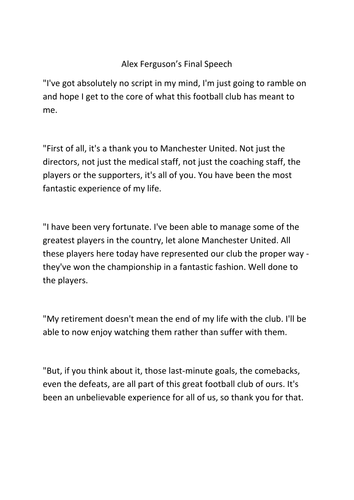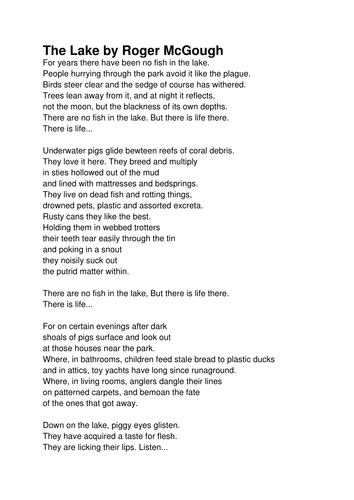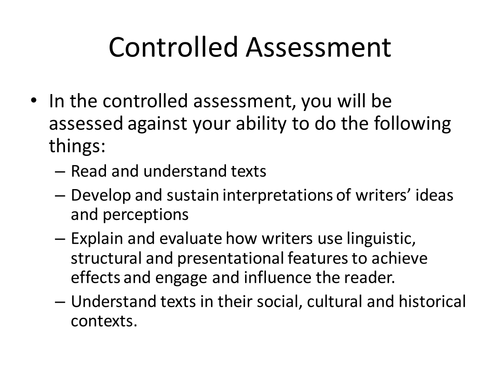
228Uploads
561k+Views
1393k+Downloads
English language arts

AQA English Language Data Collation Spreadsheet aka "The Machine"
Attached is a spreadsheet that does an awful lot of work for you. To summarise, it does the following:
Allows for easy collation of GCSE Language marks on a paper by paper basis AND as a whole examination
Allows for easy identification of various student demagraphics - EAL, PP and so on
Allows you to measure progress against students best, average and last marks across both papers
Works out "how many marks" until you hit target grades for individual students
Colour codes grades and marks to allow for at a glance progress checks
Once you buy this spreadsheet, you will not need to get another LANGUAGE spreadsheet. The document contains instructions on the ARRAY tab as to how to update .
Oh, and if you do get this, I suggest you LOCK the individual spreadsheets ASAP: the document is set up to allow you to do this and still enter the data, you just won't be able to accidentally delete any of the coding, thus removing any brain overloads that might ensue.
I am using this at my current school and there are several other schools who are using this system with good reports.
Happy spread-sheeting!
PS - Yes, there is a page that reads exactly the same but for a version that caters for the AQA Literature course. The spreadsheets are different. Here's the link/address to the LITERATURE version:
https://www.tes.com/teaching-resource/aqa-english-literature-data-collation-spreadsheet-aka-the-machine-11405407

Year 9 Preparation for GCSE Scheme of Work: Writing from around the world
A resource dump for my first attempt at preparing a middle set year 9 class for the rigours of the new GCSE - some success, but the class dynamic was more of a problem than the lesson resources themselves. Some editing may be required, but if you are wondering about how to approach the Section B parts of the exams, this covers a lot of bases.

KS4 Creative Writing Pack - inspired by "Your Shoes"
I wrote these lessons a while ago, but I remember getting some positive responses to the story AND the creative writing tasks.
For this, you will need some of those old AQA anthologies (the one that came BEFORE Sunlight on the Grass) - one of the short stories was called "My Shoes". The content, for those who don't remember, is rather more orientated towards KS4 than KS3, but the creative writing that comes from this resonates with the kids I taught at the time.
Hopefully you'll find this useful.

Debate Boxing
This is quite possibly, the coolest thing I've ever tried out. The premise is as follows: a debate between two students (or teams) where four referees observe. The referees score what they see and a winner is announced at the end.
Now add in entrance music a la pro-wrestlers (think the Rocky Theme, We Will Rock You etc.) and run it on an open evening and I promise you this - you will have EVERY parent in at some point to see what is going on.
I've run this at SIX parents evenings now and the same thing happens every time - all of the kids rock up to watch. I set it last time round where the Deputy Head took on the winner of the students (a year 9 girl). They packed the place out to see who won . The debate topic "Batman vs Superman" (serious stuff this). Needless to say, she wiped the floor with him (in a totally professional way).
You'll need to be the promoter/commentator/ring side referee - this can be exhilarating and exhausting!
Try it.

KS3: Introduction to Pre-1914 texts
A useful little unit that we put together to fill a 2/3 week gap. It has the students explore pre-1914 material - poetry and prose - and ends with a controlled assessment in the vein of the old AQA English style questions for the Literature paper.
Might fill some other gaps out there in shorter half terms.

Exploring Political Speeches (based around the old AQA English Language Spoken Language criteria)
I had SO much fun with this unit of work! It helped that the TA in my class went on to become a local MP for Labour (still is as far as I can tell...). Essentially, this series of 5 lessons - which, by the way, totally went over the 5 lessons I gave myself to teach this - explores a number of different political speeches. Included in the pack are a number of transcripts - Martin Luther King's "I have a dream" speech, Alex Ferguson's farewell speech, Bush's post-911 address to the nation and the transcripts of Clegg, Cameron and Brown from the First Televised General Election Debates (heavy stuff).
I was a little tentative at teaching this to a bottom set year 9 class, but they totally got on board with the debates (they tore shreds out of Brown...) and engaged well with the controlled assessment task at the end.
I know that the controlled assessments are now null and void (a shame really), but the exploration of speeches might be useful to someone out there in the teaching ether...

Quick Lesson POETRY - Roger McGough "The Lake"
Need a quick lesson? Look no further. A whole lesson based around Roger McGough's "The Lake" - I know it can be found online elsewhere, but I include it here for convenience's sake. Perfect for when you need to fill that irritating cover lesson with something meaningful.
Bundle

AQA English Literature Paper 2 Bundle: Modern Texts and Poetry (version 1)
Simply put, a collection of schemes and resources to aid in the teaching of this specific paper. This one focuses on the teaching of DNA and provides a mini scheme of work for the Conflict and Power unit.
Bundle

Speaking and Listening Bundle
A few resources I've cobbled together to help teach speaking and listening across the year groups.

KS3: Exploring the theme of "otherness" in Shakespeare
A unit of work I did not design, but these are the lessons I created to teach it. The lessons focus on The Tempest and Othello. These lessons were designed to be taught to a bottom set Year 9 class with more interest in staring out of the window than exploring the linguistic delights of the Bard. However, once I started to Story Woosh the plays, the analytical lessons became much more productive.
Bundle

The Whole Lot
I've put my best premium resources in one place. You get a mixture of KS3 and KS4 (AQA) resources all in one at 30% off.

Writing to argue
Old IGCSE English specification resources. Someone, somewhere, might find a way to use these...somehow.

KS3: Exploring Poetry (Character and Voice section of old AQA Anthology)
I used these lessons with year 9 classes. They still adhere to the old AQA specification (they talk of bands). But, each lesson is a complete poem and will save you some work.
Bundle

AQA English Language Paper 1 Revision Pack (version 1)
Does what it says on the tin. A revision pack for the AQA English Language Paper 1 revision pack.
Bundle

AQA English Language Paper 2 UBER-BUNDLE
4 separate resource , all of which cover AQA English Language Paper 2. Also, I've added in a data collation resource that allows you to track the data.

KS3: An Inspector Calls (introduction to the GCSE Literature paper)
A bare bones SoW that focuses on introducing the Literature aspect of study at KS3, but assesses the students on a piece of creative writing. The lessons assume you have a copy of the text for students to follow. Look at this as a starting point.
Designed with a bottom set in mind.

AQA English Language Paper 2 Section A Revision Lesson
A single power point designed to be taught as a walking-talking mock examination. This can extend over several lessons - I predict you'll need at least three to do this justice. The source materials are included.

AQA A-Level English Language and Literature: Othello - Lesson 7-8 (Technical Expression and Testing)
One lesson that focuses on getting the students to use more technical vocabulary. Another lesson that tests their understanding and hits them with an exam question at the end.
All material is based upon the AQA terminology guide (not included in this pack).




















